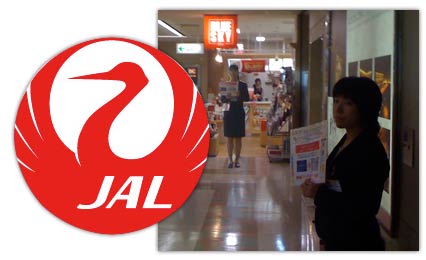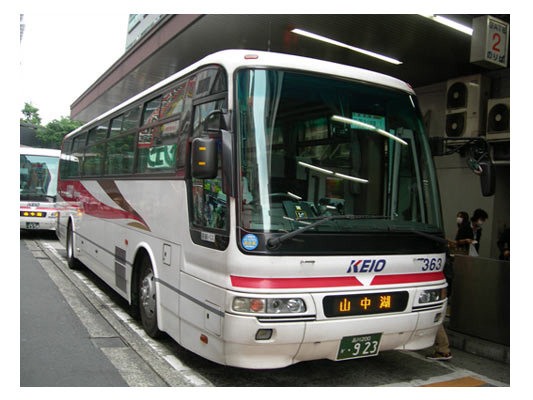The General Motors of Japan, meaning the company that’s come to represent the recession more than any other, is Japan Airlines (JAL), currently struggling with a massive debt and lagging operations as the weak economy keeps people from flying. Because the company is partially state-owned, it’s going to prove a headache for the new government, although the newly appointed transport minister has already said that bankruptcy will not be considered. JAL certainly is a nice airline, and I like flying with them whenever I get the chance, but I’m pretty sure they have a ways to go when it comes to improving efficiency. When we flew down from Aomori to Tokyo we used JAL, and in the airport I happened to see two flight attendants standing in the lobby, holding little signs that advertised the benefits of signing up for a JAL frequent flyer card. Paying people to stand around and hold signs isn’t that rare in Japan — one of my wife’s first jobs standing in the background at events holding a “no smoking” sign and smiling — but the idea of these highly trained professional women being paid to do absolutely nothing seemed to speak volumes about the company. A decade ago Nissan had a similar problem, an odd psychological resistance to eliminating jobs that couldn’t be supported by their business, and it took outside help in the form of Brazillian-French-Lebanese Carlos Ghosn to turn things around.

Struggling JAL is the poster-child of the recession in Japan.















